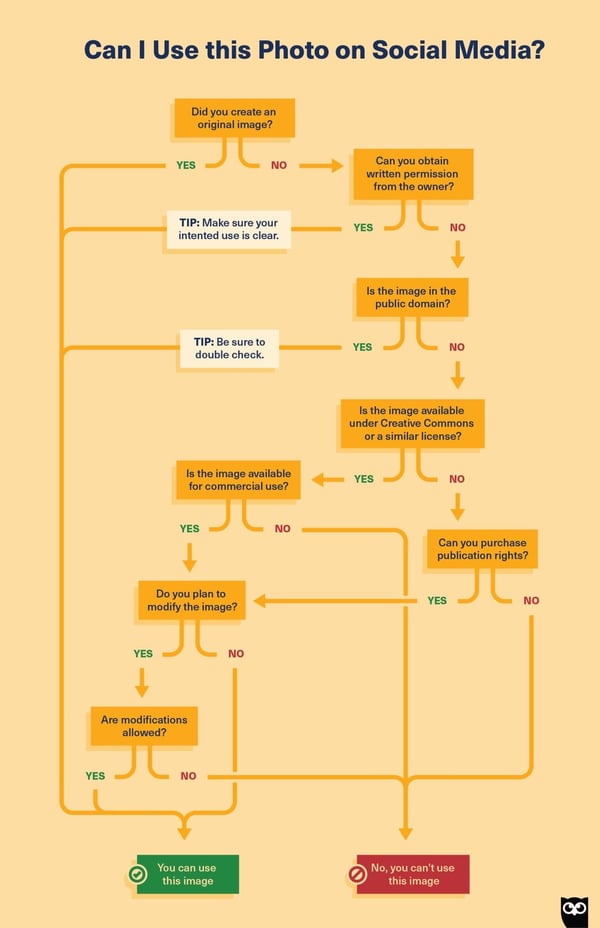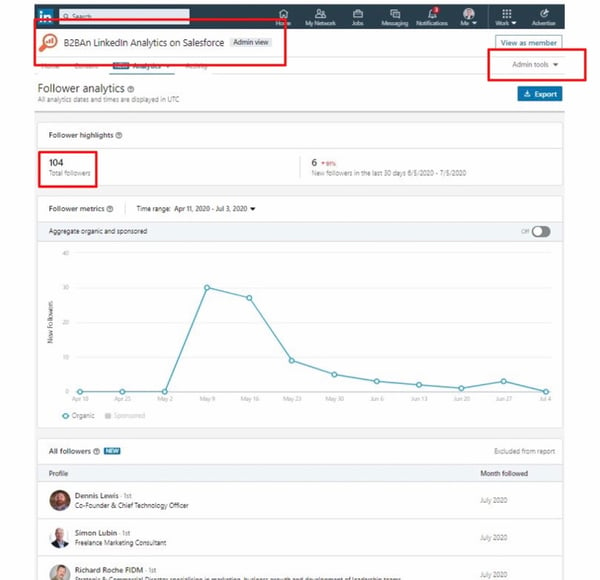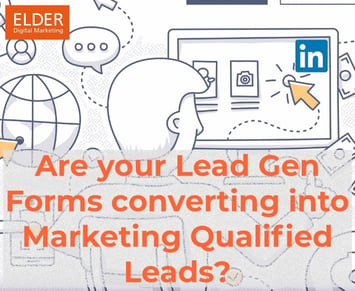Adapting your marketing during COVID-19
Due to the current climate, a lot of if not all businesses are having to adapt to the new ways of...
This blog pulls together content from LinkedIn, providing you with solid information on how to engage with your target audience. As you know, there are many things you can do, but are you executing them correctly?
Guide:
What is the best way to acquire customers for your business and engage with your target audience?
What makes your brand different from the competition?
Catch the attention of your users
What is the best way to acquire customers for your business and engage with your target audience?
Business growth hinges on one thing... Customers. You can pour tons of time and energy into a product, but without customers you’re going nowhere…
So, what is the best way to acquire customers for your business and engage with your target audience?
Here are 3 commonly used methods that you should consider using:
This is the foundation for building whatever you’re trying to do in the long term. The most popular types being: blogging, video, ebooks and guides.
Also, if you’re creating great content, it builds links, bringing your domain authority up and driving more traffic to your website.
This consists of two methods: organic and paid. Organic is most useful for boosting brand awareness and developing company personality.
Paid ads guarantee to get content in front of your target audience, without having to build up a network of followers.
SEO complements content marketing by optimising your content to be easily found by your target audience.
PPC lets you create a search result and pay for it to show up alongside organic results, increasing your chances of being found by searchers.
Email marketing is also worth a honourable mention once you have a solid database.
Now that you have a better understanding of how to develop business growth, you can move onto establishing your target audience and how to catch their attention. You need to make sure the prospect takes the next step by engaging with your content. Lets take a look...
What makes your brand different from the competition?
The best way to differentiate your brand is to show your unique perspective on what matters the most to your audience.
Even better if you appeal to a niche that doesn't get much attention from other brands.
Here are a handful of tips to differentiate your brand using content marketing:
- Research their interests, identify common questions, find out what topics are popular when they search for your brand and industry.
- Look for trending topics in your industry, the messaging and campaigns being used.
- Put a fresh spin on what your competitors are doing or do it better.
- Based on the buyer journey, products and services, geography and other key attributes.
Differentiating your brand is one thing, but then you need to catch the attention of your target audience. This can be difficult on social channels, particularly LinkedIn. Timelines are packed with content and the fight for engagement is tough.

They’ve also published a comprehensive guide to image sharing: Hootsuite's comprehensive guide: https://blog.hootsuite.com/understanding-image-copyright/?utm_source=facebook_hootsuite%20%28default%29&utm_medium=owned_social&utm_term=79abdec6-04d4-48fc-869a-1411a8aa451b&utm_campaign=all-alwayson-none-glo-en----social_hootsuite---
Social media marketing is a powerful way for businesses of all sizes to reach prospects and customers.
Increasing your social media efforts could lead to: increased brand awareness, more inbound traffic to your website, improved SEO, higher conversion rates, improved brand loyalty and brand authority.
According to HubSpot’s latest report, ‘Not Another State of Marketing Report’ gives you insight to the following:
If you are using social media purely for brand building and connecting with customers, you’re missing out on a load of new business.
According to Sprout Social, Inc. in their blog ‘How To Generate Leads Through Social Media’, some businesses saw revenue increases around 24% when they utilised social media for lead generation.
Here are some LinkedIn tactics Sprout Social covered that I think many would benefit from:
LinkedIn Premium allows you to find qualified leads based on a list of qualifying criteria, like job role and location etc.
‘Inbound marketing drives 54% more leads into your marketing funnel than traditional outbound tactics'
An effective inbound method is content marketing.
LinkedIn is the perfect place to show your expertise as a thought leader, and offer valuable information about your industry that potential leads will see.
Similar to thought leadership posts, focus on creating slide decks that are highly relevant to your target audience.
Don’t forget to have a call-to-action either inside your presentation or at the end...
Where are you generating leads from?
Looking at your analytics will help you achieve your best results. Why? Data will show you behaviour patterns of prospects which you can use to predict patterns of particular demographics. This will therefore help you drive continual improvement. Let's take a dive into LinkedIn and show you an example of how Salesflags (B2BAn) use their tools.
LinkedIn have added a new analytics tool so you, as an admin, can now see your Company Page Followers - You'll see a 'New' marker on the Analytics tab on your Company Page, signifying that something's been added.

The addition is this new listing of Company Page Followers, by individual profile, which you can expand out to a full list of every person that's followed your Page, sorted in reverse chronology
The listing gives you the opportunity to reach out to new followers to thank them for following, and a useful insight to help you refine your posting and engagement processes.
You can't download this follower list but it's an extra level of insight into your company page performance in addition to:
1) Existing follower highlights overview,
2) Follower metrics including follower trends over time
3) Demographic job role data
If you ask me, the 'Companies to Track' display, which shows you how other, "similar" LinkedIn company pages are performing in regards to follower growth, posting frequency and engagement rate, is somewhat spurious!
LinkedIn is known to be a great tool for sales activation in the B2B space, which makes you think is it time to switch to 'virtual' networking in order to build you brand?
Elder Digital Marketing (EDM) is the sister to Salesflags, so it would only be right to share the results of what consistent marketing on LinkedIn did for EDM back in 2019.
Having posted on LinkedIn every single day for a year, EDM came to the conclusion that LinkedIn Marketing is at least 10 times better than the web. They came to this conclusion by continuously learning and improving their tactics and found it had generated at least 10 times more engagement than their own website!
Of the 250 million monthly active users, only 3 million share content on a weekly basis, that’s just a touch over 1%
Organic posting is great for nurturing leads that are not yet ready to buy your product.
Organic content helps you establish a relationship with your audience.
Let them get to know and trust you.
However, organic content MUST be social, no-one wants to engage with someone who only talks about themselves everyday.
Posting from a personal account also helps drive more engagement, as most users tend to engage more with an individual rather than a company page.
You can still talk about your products, their features and how they solve your target's pains. But make sure it’s broken up with engaging content to provide variation.
Grasp the opportunity to meet new connection on LinkedIn and consider switching to 'virtual' networking?
Here's Jonathan's, Director of Salesflags and Elder Digital Marketing summary: How to grow your LinkedIn Network and Generate New Leads:
![]() 1) Fine Tune Your Profile Headline.
1) Fine Tune Your Profile Headline.
2) Find People That Match Your Target Persona.
3) Send Them Connection Requests.
4) Post Content They Will Engage With In Their News Feed.
5) Post Content With A Call To Action.
6) Comment And React To Their Posts.
7) Directly Message Them A Sequence Of Offers To Engage.
8) Record, Measure and Analyse Your Progress.
9) Identify Leads To Nurture With Emails And Calls.
10) Withdraw Connection Requests That Are Not Accepted.
Simple but time consuming.
Are you switching to more 'virtual' networking in the current circumstances?
Are you networking on LinkedIn effectively?
This is why we have come to the conclusion that LinkedIn Ads are effective when you use them to identify contacts who want to build a relationship with your brand, and when your average sales value is £10k or more.
LinkedIn Ads are renowned for their expensive $6-9 per click rate, but with a typical CTR of 0.4% and an audience of >20k profiles, very precisely targeted, plus integrated Lead Generation Forms, that increase conversion by up to 50%, then you can expect 5-10 “leads” per month.

Work starts to incrementally improve Ad performance with a rhythm of regular client analysis, reporting and development of better creative
Of course the remuneration; commission, fees and incentives to support this process (Charging hourly, on performance, flat fee, % of Ad spend) is important, but a topic for another day!
Here's a step-by-step guide on how does your Agency work to improve Ad performance:
Step 1: The Agency sets itself up for a good campaign; on-boarding with:
Step 2: The Agency develops the strategy and plan the campaign(s) to meet the agreed objectives...
Step 3: Comes creation of Ads:
Step 4: Campaign planing on the LinkedIn platform includes the set up of bids, budgets and split testing is analysis of initial Ad performance.
Step 5: The whole end to end campaign not just the LinkedIn stats but also checking the quality of the "leads" generated - qualifying them.
What quality are the leads:
Campaign Manager reports in groups, showing the number of people from within a certain category who took a certain action or saw your ad.
For example, Campaign Manager might report that 10 people who work in IT opened your Lead Gen form.
This means that some categories are 'Below reporting minimum'.
For example, 1 or 2 people who work in Consulting may have also opened your Lead Gen form.
So how do you get the best understanding of who opened your Lead Gen form?
If you are running any lead gen ad campaigns, continually testing your campaigns is the key to finding out what enables you to reach and convert more of the right LinkedIn members, ultimately improving return on investment and cost per lead in comparison to revenue or customer lifetime value.
What should you test and how?
Before you launch the next campaign, test message/image/offer combinations organically first (i.e. by posting) to get an initial sense of what resonates with your immediate audience. This way you'll have some social proof before you develop content to sponsor.
When your ad campaign is live and running, obviously you'll want to continue testing the combos - but what about the effectiveness of the offer itself?
Analytics from the offer web page such as time reading and actions taken afterwards give an indication of value, relevance and also of lead quality.
Consider testing engagement with different offers to identify turn-ons and offs.
How you adjust targeting parameters in Campaign Manager is also important. Gradually prioritise and deselect different criteria as you gain campaign performance and demographic data.
Below are imagines from LinkedIn Targeting Parameters. Reviewing analytics regularly across your Ads will inform your incremental improvements.
By understanding your target audience and making your content engaging, you will want to start seeing results, the analytics help you focus retention which can then be targeted during a marketing campaign.
This is where you can take a look to see what you can improve on...
Due to the current climate, a lot of if not all businesses are having to adapt to the new ways of...
Sales intelligence is known to be a software which enables sales professionals who use technology...